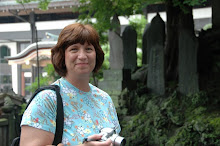 During the morning session the topic was Japan's Economy with Manabu Fukuda, Chief Legal and Compliance Officer, Secured Capital Japan Co., Ltd., as the guest speaker. He discussed the fact that Japan has a low unemployment rate. However that rate is rising because people are moving around more and people no longer work for the same employer his/her entire life as was once custom. Fukuda stated there us a low immigration rate, the highest immigration is from Korea, China, or Brazil. The population is aging like in the United States, currently 17% of the populaton is over 65. By the year 2050 it is estimated that 35% of the population will be over 65.
During the morning session the topic was Japan's Economy with Manabu Fukuda, Chief Legal and Compliance Officer, Secured Capital Japan Co., Ltd., as the guest speaker. He discussed the fact that Japan has a low unemployment rate. However that rate is rising because people are moving around more and people no longer work for the same employer his/her entire life as was once custom. Fukuda stated there us a low immigration rate, the highest immigration is from Korea, China, or Brazil. The population is aging like in the United States, currently 17% of the populaton is over 65. By the year 2050 it is estimated that 35% of the population will be over 65.Japan is 95% self sufficient in rice production, with most other farm products imported. The country is looking for alternative energy sources. Currently working to use more hydro, thermal, and nuclear power.
In the afternoon the first speaker was Tsutomu Kimura, President,
 National Institution for Academic Degrees. His focus was on the Japanese educational system and the need for educational reform.
National Institution for Academic Degrees. His focus was on the Japanese educational system and the need for educational reform.The "Ministry of Education, Culture, Sports, Science and Technology (MEXT) determines the subjects studied in elementary and secondary schools. They authorize textbooks and pay 1/3 of teacher salaries for teachers in elementary and lower secondary schools (Jr. High School), these levels are considered compulsory education because all students must attend.
Educational reform has set a purpose of ensuring the quality of education and efficiency, 100% enrollment in elementary and lower secondary school, 98% attendance in upper secondary school, and zero illiteracy rate. The current problems in the educational system are Japanese children are under stress due to the entrance examination taken at end of lower secondary school to determine which upper secondary school they will attend. The upper secondary school they attend determines whether they will be admitted into a university. There has also been an increase in school violence and bullying. These concerns have prompted the Central Council for Education to determine a need for educational refrom. The basic direction of the reform is to "produce 'creative' individuals and provide more 'diversity' and 'flexiblity' in the educational system; should give children Room to Grow and Zest for Living".
 We also listened to speakers representing the Japanese Government. Yuji Tsushima, Diet Member (House of Representatives) and Wakako Hironaka, Diet Member (House of Councillors) spoke about current political issues in Japanese Government. Women make up 8% of the House of Representatives and 18% of the House of Councillors.
We also listened to speakers representing the Japanese Government. Yuji Tsushima, Diet Member (House of Representatives) and Wakako Hironaka, Diet Member (House of Councillors) spoke about current political issues in Japanese Government. Women make up 8% of the House of Representatives and 18% of the House of Councillors.The Government has limited financial resources and is considering as to whether the people should pay more taxes to meet the needs of the citizens as the population ages. There major concerns include health care, pension system, and the enviroment. Ysushima stated "we must correct miss-spending before we can look at tax hikes" and that "special groups cause spending to be too high in many local projects". I think he was talking about the United States, not Japan!
The citizens of Japan pay national taxes, as well as taxes at the prefecture and local levels. This is also like in the United States where we pay Federal income tax, State income tax, and local property taxes.
It is amazing how similar the education and government concerns are when comparing to those of the United States. In so many ways our countries are more alike than different
At the end of the day we were given two books written by Kenji Miyazawa titled The Nighhawk Star and The Kenju Park Grove. Miyazawa, 1896-1933, is a well known auther in Japan. Many of his works are in public school textbooks and did not become public until after his death.

No comments:
Post a Comment